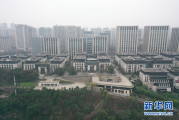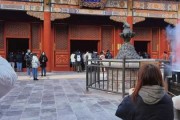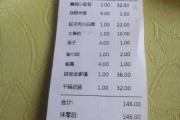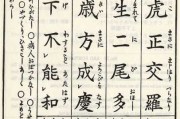本文目录导读:
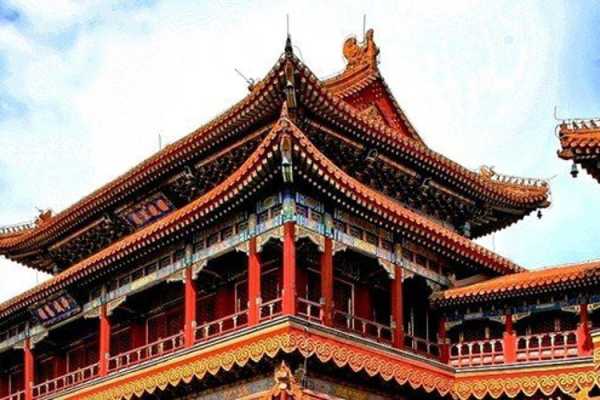
在 China's historical and cultural landscape, 雍和宫 is a place of great significance, often associated with mystery and spiritual practices. For many, it is a place where the unknown can be unraveled, and the uncertain can be sought. But where exactly can one go in 雍和宫 to seek a sign? This article delves into the secrets and practices associated with 雍和宫's divination rituals.
雍和宫的历史与地位
雍和宫, also known as the Temple of the Blue Lake, is one of the three imperial palaces in Beijing, China. Built during the Qing Dynasty, it serves as a place of worship for the imperial family and a repository of imperial art and culture. The palace is renowned for its serene environment and its role in imperial rituals and ceremonies. Its spiritual significance has only become more prominent in recent years, with many visitors seeking its spiritual remedies and divination practices.
雍和宫的求签场所
In the world of Chinese superstition, seeking a sign or a prediction is a common practice. In 雍和宫, there are several places where one can perform such rituals. The most famous is the "签匣," a all box where one can place a coin or a piece of paper to seek divine intervention. The process typically involves placing the item in the box, which is then sealed and placed in a specific location within the palace. The exact location is said to vary depending on the individual's needs or the nature of the question being asked.
Another place where one can seek a sign is the "香炉殿." This is a all room within the palace where incense is burned. By placing a coin or a piece of paper on the altar, one can seek the guidance of the spirits. The process is believed to draw upon the energies of the palace and the imperial family, making it a powerful tool for divination.
雍和宫的求签方法
The method of seeking a sign in 雍和宫 is said to be deeply rooted in tradition. The process typically begins with the individual placing a coin or a piece of paper in the "签匣." The coin is then sealed with a piece of silk, which is said to protect it from the elements. The box is then placed in a specific location within the palace, often near a specific door or statue.
The individual then waits for the sign to appear. This is said to happen through the energies of the palace and the imperial family. The sign could take the form of a shadow, a sound, or even a movement of the air. When the sign appears, the individual is said to interpret it, drawing upon their own intuition and knowledge of the palace's history and significance.
雍和宫的求签文化
The practice of seeking a sign in 雍和宫 is not just a physical ritual, but also a deeply spiritual one. The palace is said to hold the energies of the imperial family and the ancient Chinese culture, making it a powerful source of guidance. Many visitors believe that by seeking a sign here, they are able to tap into these energies and gain insight into their own lives or the future.
The process is also said to be very personal. The individual is said to place their own "spirit" into the sign匣, making the process deeply personal and intimate. The sign is then believed to reflect the individual's own intentions and desires, as well as the energies of the palace.
雍和宫的求签意义
The meaning of seeking a sign in 雍和宫 is said to be profound. The sign is believed to represent the future, the energies of the palace, and the individual's own intentions. By interpreting the sign, the individual is said to be able to gain insight into their own life's path, their relationships, and even their destiny.
The process is also said to be a form of spiritual practice. By seeking a sign, the individual is said to be able to connect with the energies of the palace and the imperial family, and to gain a deeper understanding of themselves and the world around them.
In conclusion, 雍和宫 is a place of great spiritual significance, and the practice of seeking a sign here is a powerful tool for divination and spiritual growth. Whether you are seeking guidance for your own life, or simply looking to connect with the energies of the palace, 雍和宫 offers a unique and transformative experience. So if you are ever in Beijing, make sure to visit 雍和宫, and take the time to seek a sign. Who knows what you might discover?
我应该先查一下雍和宫的历史,看看有没有相关的记载。可能在古代,求签是常见的做法,特别是在占卜和祈福的时候。,我需要了解现代的情况,是否有现代人去雍和宫求签,或者是否有相关的照片、文献提到过
好,用户让我写一篇关于雍和宫求签的地方的文章,标题已经给出,内容要不少于865个字。首先,我需要理解用户的需求。他们可能对雍和宫的历史和求签习俗感兴趣,或者想了解这个地方的文化背景
夜幕降临,城的灯火次第亮起。我独自走进位于雍和宫内的算命间,寒气从门缝里透进来,却驱散不了我内心的好奇。雍和宫的算命女们总是这样,带着几分神秘,几分调侃,让人忍不住多看两眼
好,用户让我写一篇关于昆明哪里能求签子的文章,先写标题,再写内容,内容不少于840字。首先,我需要明确用户的需求。他们可能是在昆明旅游或者寻找某种服务,想了解哪里能找到求签子的地方

